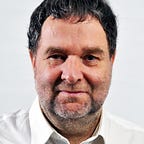End of Year Reflection on Migration: Reshaping Rural Independence
Looking back on 2020, it was a year of disruption. Suddenly many borders closed and not only refugees but almost everyone started to seek a safe haven for themselves. Sadly, inequalities between privileged and disadvantaged people became painfully visible. Fortunately, the importance and awareness of the need for solidarity also resurfaced. Since Refival’s frameworks target the inclusion of vulnerable people and the development of deprived areas, its proposals became more relevant than ever.
Part of Refival’s focus is on rural revitalization. Small village communities in Europe have a lot to offer to their residents. They are generally rich in cultural tradition, strong in togetherness, and offer ample space and a healthy natural environment for children to grow up. However, with agriculture as a share of the economy in decline, and with most alternative occupations facing more educational requirements than before, many of Europe’s isolated rural communities face extinction.
One of the root-causes for this is that young people are being forced to leave their villages in order to receive higher education and that — after adapting to urban life — they mostly do not return. This induces a downward spiral of a lack of qualified people to potentially fulfill, often remote, skilled jobs that could financially support their local communities. Without attracting such additional modern employment, the rural economy cannot diversify and turns unsustainable.
The solution Refival proposes is to rebuild rural education in a manner that nobody is forced to leave their village in order to study. Meanwhile, this is technically possible by blending online elements with classroom education. If one combines individualized adaptive learning and MOOC with social mentoring of broader age groups, a complete education trajectory can be offered at a very small scale. This way, it becomes feasible to create a local rural education system — offering schooling levels from kindergarten to university — for as little as one hundred pupils in total. Doing so, the next generation will be able to enrich their communities with locally obtained increase in knowledge.
There are, understandably, limits to this approach. To train practical vocational skills that are more technically advanced, a larger number of students is often needed to make it economically feasible. Cities provide better cost efficiency in this. On the other hand, many subjects can be studied without permanent relocation, and hands-on experience can be gained during shorter visits. Although more densely populated areas will remain hubs of human interaction and optimized specialization — which are essential for some professions — rural and urban alternatives can nevertheless be seen as equally valuable personal choices. As long as a contemporary lifestyle is based on inclusion and people are able to participate on a global level, sustainability is achievable.
With rural ageing and depopulation happening for quite some time now, there are not enough young people left in the countryside to autonomously revitalize their communities. Therefore, generating inward migration — attracting the right newcomers — is critical to regaining future economic and social perspectives, and for reshaping rural independence.
Synergy can be found here with the other part of Refival’s mission: “to support and resettle refugees”. The crucial point is that the envisioned rural educational structure, being individualized and built on community participation, is also very suitable to assist people to culturally adapt and mentally recover. Regardless of whether the ultimate goal is to qualify newcomers to join the European labor force or to educationally prepare people to return and rebuild their lives in their home countries, rural incubation would benefit both refugees and the community that hosts them.
Refival therefore supports additional resettlements of displaced people to rural areas in the European Union from countries which cannot offer a future to them. However, Refival cannot achieve this alone. Your assistance or advice is crucial for improving the lives of many and is very urgently required. Please contact me if you are interested to engage in my initiative, or are aware of any sponsoring or project financing options. Together, we can make change happen.
